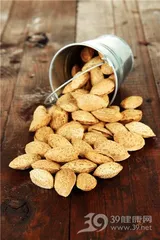What snacks are delicious and healthy

The most useless snack: dried fruits
Speaking of snacks that can be eaten during weight loss, Miss Jiu has always felt that the less processed, the healthier they are, such as eating fruits and chewing cucumbers directly!
But since eating like a supermodel became popular, the "forced breakfast" world has fallen in love with super fruits, dried berries, blueberries, cranberries, all kinds of dried fruits ~ used to make milkshakes, mix yogurt, and eat them until they can't stop!
In fact, eating fruit directly is healthier.
Although dried fruits and vegetables that are dried and dehydrated under vacuum do not require additional sugar, oil and other ingredients, the fruits are only dehydrated and concentrated to produce dried fruits, a large amount of vitamins are lost during the processing process, and the sugar is concentrated, and the calories are also concentrated.
The method of frying and dehydrating will turn fruits into "high-fat snacks", making fruits with a fat content of less than 1% become 10% or even more than 15%, such as dried bananas, dried durian, etc.
The most hypocritical snack: dried vegetables
Last time, a girl said: Miss Jiu, I usually eat dried vegetables to make snacks. This is equivalent to eating vegetables directly. How healthy it is. I will definitely lose weight successfully this time, right?
No! Dried vegetables are the most disguised snacks!
Are dried vegetables healthy? If you look at the ingredients alone, they are indeed vegetables, but do you think these dried vegetables are really dried? How can drying have such a crispy taste? Dried vegetables are made at low temperatures and oily, so their oil content cannot be underestimated!

The hottest snack: nuts
Needless to say, the benefits of nuts are rich in unsaturated fatty acids, protein, multivitamins and minerals, and can resist aging.
However, it is precisely because it is rich in fatty acids that nuts are very high in calories.
A bag of salted peanuts can have thousands of calories. If you want to lose weight, you need to control your daily calorie intake to 1500 calories.
Therefore, nuts need to be eaten in moderation, only a small handful a day! Choose unsalted nuts! Salt-free!
The most painful snack: coconut water
About two years ago, Hollywood superstars have been on a craze for not drinking water well! That's right, they all said that they must drink coconut water every morning!
Coconut water is actually a very healthy and natural drink after the coconut is broken. It is not only extremely low in calories, but is also rich in potassium ions to eliminate edema. It can also be drunk as a sports drink.
But its biggest bug is: expensive! (How can I afford to drink if I don't become popular overnight?)
The most "frivolous" snack: seaweed
I know the taste of the sea!
Seaweed is definitely a good snack to pass time and eliminate loneliness, because it is frivolous enough, so light that you won't eat many calories after eating it for a long time!
This is a cheap and cheap conscience snack!
In fact, there are many healthy snacks you can choose from during weight loss:
The most outrageous snack: non-fried nachos, because this is simply on the verge of health and gain weight!
The most practical snacks: Farmhouse homemade dried sweet potatoes. Miss Jiu used to brush fat for a while and ate them as a staple food every day with chicken breast meat. Don't be too happy in life! Basically, as long as you buy the ones shipped from Shandong, they will be delicious!
The darkest snack: Dark chocolate with a purity of more than 72%. Miss Jiu has bought 99% of dark chocolate, and the feeling after eating it is just returning it! No! Such as! Eat! Soil! I can't feel the legendary sweetness at all!

[Benefit: Come and see how you should lose weight?]
Want to lose weight healthily? Want to know what is the right way to lose weight for you?